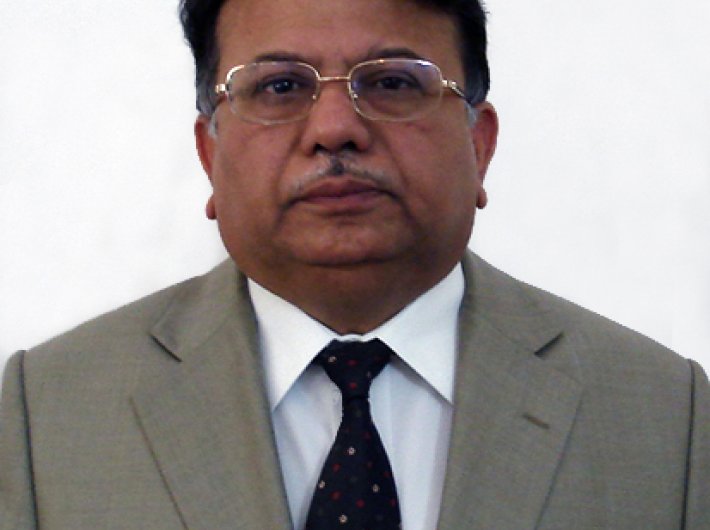If anyone holds a view that is different from the government’s “acceptable” view, they are immediately dubbed as “anti-national” or “desh-drohi”, says justice AP Shah
Former chief justice of the Delhi high court, justice Ajit Prakash Shah, has batted for free speech, expressed concern over sedition charges against JNU students, and said that the order to stand up for national anthem in cinema halls has “actually undermined patriotism amongst fellow Indians”.
Here are excerpts from MN Roy memorial lecture on “Free Speech, Nationalism and Sedition” that was delivered by Shah on Wednesday:
Today, we are living in a world where we are forced to stand for the national anthem at a movie theatre, we are told what we can and cannot eat, what we can and cannot see, and what we can and cannot speak about. Dissent, especially in the university space, is being curbed, and sloganeering and flag raising have become tests for nationalism. We have a 21-year old university student who is subject to severe online hate, abuse, and threats, only because she dared express her views.
Our institutions of learning are under attack today and there is a concerted attempt to destroy any independent thought. Today, sadly, in this country I love, if anyone holds a view that is different from the government’s “acceptable” view, they are immediately dubbed as “anti-national” or “desh-drohi”. This marker of “anti-national” is used to intimidate and browbeat voices of dissent and criticism, and more worryingly, can be used to slap criminal charges of sedition against them.
India is a diverse country and people hold different views about nationalism, the idea of India, and our place in the world. We must respect these differences, not silence those who hold a different view on nationalism and patriotism for the country. Elevating only a single view – one that idolises the nation and staunchly rejects any internal or external criticism – will only polarize citizens against each other.
Our right to free speech and expression is not a gift or a privilege that the government bestows on us; it is our right, guaranteed by the Constitution of India, and won after decades of struggle and sacrifice by the people of India.
The supreme court has repeatedly emphasised the value of free speech, noting that the freedom of speech and expression lies at the foundation of all democratic organisations, inasmuch as free political discussion facilitates public education and enables the proper functioning of the processes of government.
Free speech has to be protected institutionally – not only by the Courts, but also by statutory institutions and the media.
How can you forget that in Udta Punjab, an Adult-only certified movie, the Censor Board demanded 94 cuts (based on 13 suggestions), including deleting the name “Punjab”, deleting certain abuses and deleting the words “Election”, “MP”, and party worker”. If this is not an assault on the freedom of speech and expression, then I don’t know what is.
In recent times, a section of the media, through its biased and one-sided reporting, has unfortunately aided in the restriction on free speech. A news channel airs false and doctored footage, while others openly flame the fans of this patriotism and anti-national debate. It is ironic that the media, which played a critical role in asserting its right to free speech during and after the emergency, and in the process helped develop our Article 19(1) jurisprudence, is now the institution that is compromising and challenging the same freedom of speech of the dissenters today.
We are still grappling with the fact that the crime of sedition was invoked against a group of 20-something university students for doing what students in a campus should feel entitled to do – raise slogans, debate, disagree, and challenge each other on complex, political issues that face the nation today.
It is therefore left to the courts to re-examine the constitutionality of sedition. It is not enough to expect an acquittal by the courts after 4-5 years; we need to stop the misuse of the law to silence dissent by removing the source of the power itself.
The guarantee of freedom of speech rings hollow, if the State cannot guarantee freedom after speech.
I know of many people who considered themselves patriotic and would always stand when the national anthem was played. But the Supreme Court’s order has fundamentally changed their relationship with the anthem and has resulted in undermining its import. The order may have ensured that cinema audiences throughout are now standing before the national anthem plays, but what the Court fails to have realised is that such an action is a performance, motivated by fear of being beaten up, rather than genuine respect and love for the anthem. In the end, it has actually undermined patriotism amongst fellow Indians.
Similarly, preventing people from eating the food they want and effectively forcing a life choice on them undermines any feelings of nationalism and unity, and is another insidious form of cultural nationalism. Recently, Mohan Bhagwat called for a national law against cow slaughter. But we must be wary of forcing a single ideology or way of living on the entire country, especially a country as diverse as India, where States such as Kerala, or the various states in the North East consider beef a staple part of their diet.
How can we forget the lynching of Akhlaq, who was suspected for allegedly storing and consuming beef, but where the first thing that was sent for forensic examination was not his body, but the food that is in the fridge. Is this what the value of human life comes to?
Read the whole lecture here
